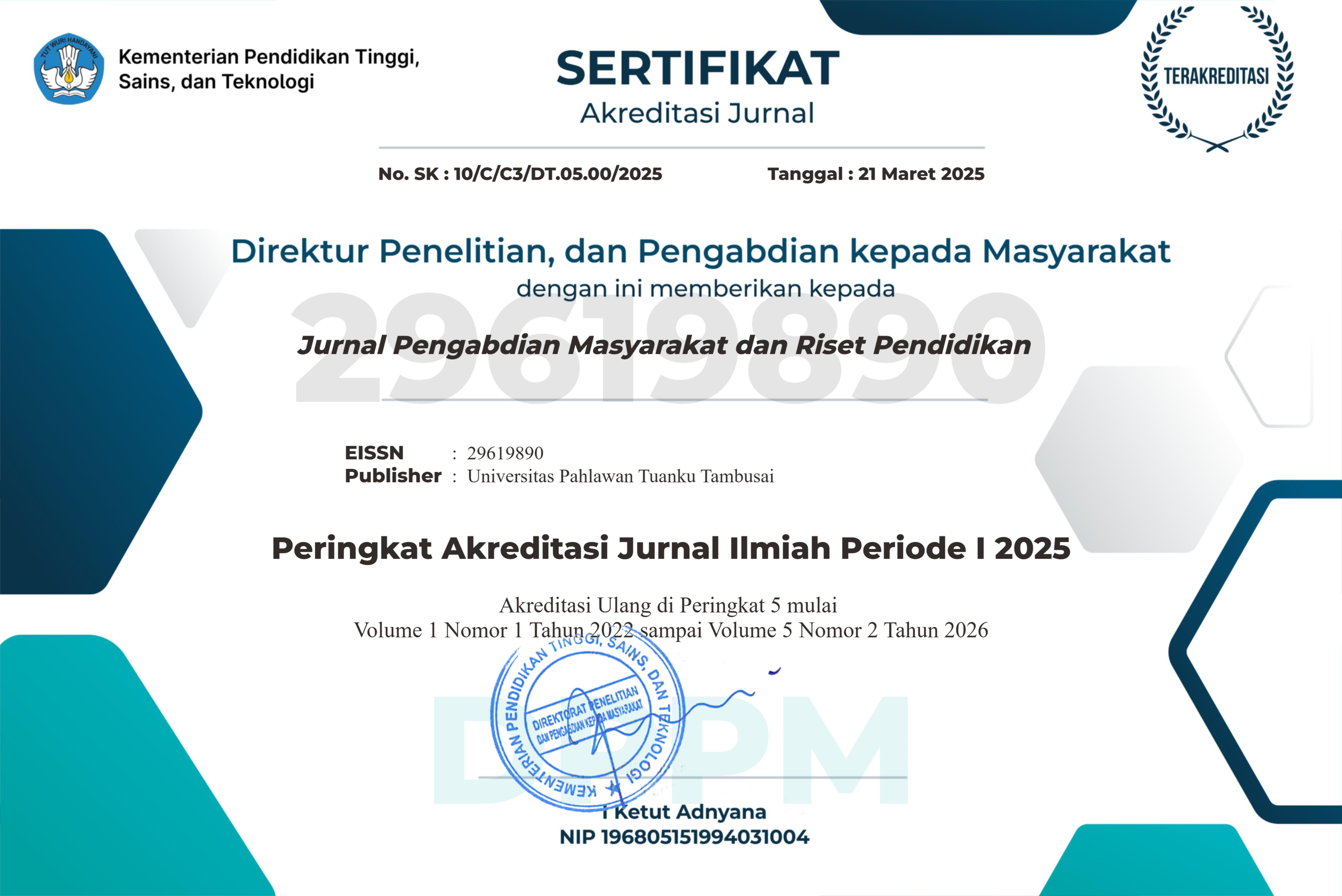Pengaruh Model Scaffolding PjBL dan Self-Efficacy terhadap Penanaman Nilai Tawazun dalam Pembelajaran Ilmu Nahwu di Madrasah Aliyah
Penelitian
DOI:
https://doi.org/10.31004/jerkin.v3i4.609Keywords:
Nahwu Science Learning, Tawazun Values, PjBL Scaffolding, Self-Efficacy, Madrasah AliyahAbstract
This study aimed to examine the influence of the Scaffolding Project-Based Learning (PjBL) model and self-efficacy on the internalization of tawazun (balance) values in Nahwu learning at Madrasah Aliyah. Tawazun, representing the balance in life, was integrated through understanding Arabic sentence structures such as the relationship between mubtada’-khobar and fi’il-fa’il. This research employed a quantitative approach using a quasi-experimental method with a pretest-posttest control group design. The subjects were tenth-grade students of MA Mambaus Sholihin Gresik, selected through purposive sampling. Research instruments included a self-efficacy questionnaire and a tawazun value questionnaire. Data were analyzed using MANOVA tests. The results showed that the application of the Scaffolding PjBL model significantly improved students' understanding of Arabic sentence structure and increased their awareness of balance values in everyday life. Moreover, students’ self-efficacy contributed positively to strengthening the impact of the learning model on the internalization of those values. These findings recommend the use of contextual and reflective learning models to enhance student character development through Arabic language education.
References
Akbar, Fadhil Hidayat, Farida Lailatul Fasha, and Faris Abdullah. “The Concept of Religious Moderation in a Review of the Qur’an and Hadith.” Bulletin of Islamic Research 2, no. 1 (June 3, 2024): 59–80. https://doi.org/10.69526/bir.v2i1.21.
Asiah, Asiah, Zamroni Zamroni, and Muhammad Khairul Rijal. “Problematika Pembelajaran Nahwu Dalam Meningkatkan Keterampilan Berbahasa Arab Di Lembaga Pendidikan Indonesia.” Borneo Journal of Language and Education 2, no. 2 (December 30, 2022): 170–85. https://doi.org/10.21093/benjole.v2i2.6104.
Bandura, Albert et.al. Self-Efficacy in Changing Societies. New York: Cambridge University Press, 1997. https://doi.org/10.1109/EVER.2017.7935960.
Dina Salsabila, Asmaiwaty Arief, and Rehani Rehani. “INOVASI DALAM PEMBELAJARAN PENDIDIKAN AGAMA ISLAM DI SD/MI UNTUK MEMBANGUN KARAKTER ANAK SEJAK DINI.” Holistik Analisis Nexus 1, no. 11 (November 13, 2024): 39–46. https://doi.org/10.62504/nexus978.
Fadilah, Yayang Wiwik, and Siti Sulaikho. “Kelayakan Media Pembelajaran ISpring Suite Berbasis Android Pada Mata Pelajaran Nahwu Shorof.” Arabia 13, no. 2 (January 5, 2022): 315. https://doi.org/10.21043/arabia.v13i2.10710.
Ridho, Ubaid. “EVALUASI DALAM PEMBELAJARAN BAHASA ARAB.” An Nabighoh Jurnal Pendidikan Dan Pembelajaran Bahasa Arab 20, no. 01 (June 24, 2018): 19. https://doi.org/10.32332/an-nabighoh.v20i01.1124.
Shin, Myeong-Hee. “Effects of Project-Based Learning on Students’ Motivation and Self-Efficacy.” English Teaching 73, no. 1 (2018): 95–115. https://doi.org/10.15858/engtea.73.1.201803.95.
Downloads
Published
How to Cite
Issue
Section
License
Copyright (c) 2025 A’ffatin Fakhriyah, Imam Nur Aziz

This work is licensed under a Creative Commons Attribution-ShareAlike 4.0 International License.















